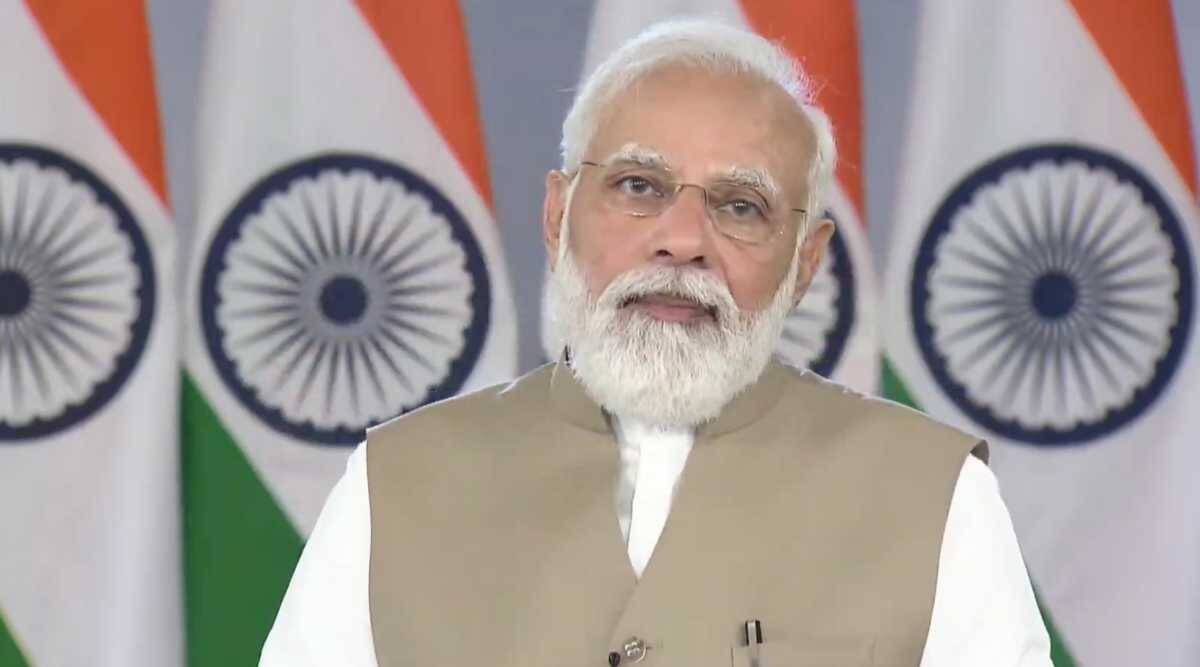PM requests improved cooperation between state police and central agencies at DGPs’ meeting

Prime Minister Narendra Modi demanded more cooperation between state police forces and central agencies on Sunday in order to maximise capabilities, and he emphasised the importance of boosting traditional policing techniques such as foot patrols in addition to implementing technological solutions.
In his address at the 57th All India Conference of Director Generals and Inspector Generals of Police, he advocated for the abolition of antiquated criminal statutes and establishing national standards for state police agencies.
According to an official statement, the prime minister emphasised improved cooperation between state police and federal agencies to utilise capabilities and share best practises.
According to the report, he also discussed “strengthening border and coastline security through frequent official inspections.”
Modi also stated that police officers must be made more sensitive and schooled in emerging technologies, and he emphasised the significance of the National Data Governance Framework in facilitating the interchange of data between agencies.
He recommended that while police forces should make greater use of technical solutions such as biometrics, traditional policing procedures such as foot patrols must also be strengthened.
Modi also supported prison reforms to enhance jail administration.
The prime minister asked for the replication of DGP-IGP conferences at the state and district levels in order for their teams to discuss emerging challenges and improving best practises.
The conference addressed numerous facets of law enforcement and national security, including counterterrorism, counterinsurgency, and cybersecurity.
The three-day meeting, which began on January 20, was attended by Union Home Minister Amit Shah and National Security Adviser Ajit Doval. The hybrid conference was attended by around 600 officers of varying ranks from states and union territories.
“Modi has taken a particular interest in the DGPs’ conference since 2014. In contrast to the symbolic participation of prime leaders in the past, he attends all important sessions of the conference, according to a statement from the Prime Minister’s Office.
It was also stated that the prime minister not only listens to all contributions with patience, but also promotes free and informal dialogues in order to generate fresh ideas.
This provides a conducive environment for the country’s top police officials to directly brief the prime minister on major policing and internal security concerns and deliver open and candid recommendations, according to the statement.
An official stated that the conference initiated discussions on futuristic topics in policing and security under the leadership of the prime minister.
During the three-day meeting, topics such as security challenges along the land borders with Nepal and Myanmar, tactics to detect foreigners overstaying in India, and the targeting of Maoist strongholds were discussed.
In addition, Modi handed Police Medals for Exceptional Service.
The annual meeting was conducted in New Delhi until 2013. The following year, when the Modi administration took office, it was decided to hold the Ministry of Home Affairs and Intelligence Bureau-organized event outside the nation’s capital.
It took place at Guwahati in 2014, Rann of Kutch in 2015, the National Police Academy in Hyderabad in 2016, the BSF academy in Tekanpur in 2017, Pune in 2019, virtually during the Covid epidemic in 2020, and in a hybrid format in Lucknow in 2021.
This time, the conference was held in Delhi’s Pusa at the Indian Agricultural Research Institute. Previously, the meeting in the nation’s capital was held at the Vigyan Bhavan.
According to the official, the number of business sessions and topics has expanded dramatically, with an emphasis on enhancing police service to the public.
Prior to 2014, discussions generally centred on problems of national security. The official stated that since 2014, these conferences have focused on both national security and core policing issues, such as crime prevention and detection, community policing, law and order, and improving the police’s image.
According to the source, direct engagement between the chief of police and the head of government has resulted in a convergence of perspectives on the country’s most pressing concerns and the formation of actionable proposals.
In the past few years, the topics for the conference have been picked following extensive consultations with the highest levels of the police service.
Once selected, many exchanges on presentations are held in front of director general committees to stimulate involvement and incorporate ideas from the field and junior officers, according to the official.
According to the official, all presentations are now comprehensive, content-heavy, and accompanied by a set of rational and actionable recommendations.
Since 2015, extensive follow-up of past conference recommendations has been the standard and is the subject of the first business session.
With the assistance of state nodal officers, the conference secretariat, directed by the Intelligence Bureau, tracks recommendations closely.
The official stated that decisions made at recent conferences led to significant policy changes that improved policing in the country, including the establishment of higher standards for effective policing in rural and urban areas and improved methods of modern policing based on intelligent parameters.



